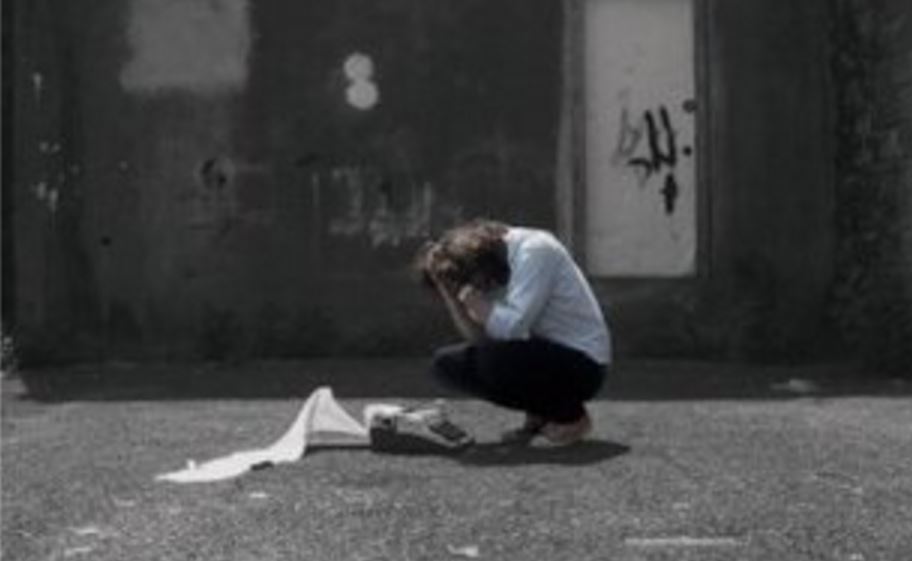“All writers must brace
to hear the same advice
over and over and over and
over and over and over and
over again….”
Zeller’s Alley is Diehl’s debut poetry collection. The book is divided into three sections, each titled by a quote from one of the poems. The first of the sections is entitled “Quit making the talentless rich with your terrible taste.” It’s a nice line, and the poems here are full of them. However, I found this to be the weakest section. Many of the poems have good lines but don’t work well as a whole.
My least favorite poem in the book is in this section, entitled “A Supper—Far From the Last.” This poem recounts a supper in which the narrator is dragged out of bed by his parents to come eat supper. The mother and father annoy the narrator and Diehl does too good of a job of portraying that. The mother and father just become annoying for the reader as well.
“’How’s work?!’
‘How is your writing going?!’
‘DO YOU LIKE YOUR TURKEY?!’
‘HERE, TAKE SOME MASHED POTATOES!’
‘Do you still talk to Holly?’”
It even includes the cartoon cliché of dumping food to the dog just to get away. The poem fails at being funny or at having any sort of insight.
Most of the poems in this section are autobiographical. The first poem is even called “My Name is B.” This is one of the better poems in this section, engaging in some self-deprecation worthy of Celine.
“Ugly as a blobfish, boring as a desk job–
I can’t hold my liquor (or my fingers from their rants).”
Most of the poems here, I just found forgettable. There are poems about work, home life, and love poems, but few of them stuck with me. Even looking through them for this review, I can find good lines in the poems, but not much else to talk about in them.
The second part, “Stimulus, where are you? Doctor where are you?” I enjoyed much more. The first poem, “I Feel–” recounts a break up with a past girlfriend. It’s told in a simple and straightforward manner, but effectively conveys the feelings the narrator goes through.
“I rack my brain
for an appropriate
response
and find nothing.”
Many of the poems deal with this break up. One would think this would get repetitive, but Diehl manages to find variations on the theme in ways that keep the poems compelling on their own. For example, in “Moosey Took One for the Team,” the narrator takes a stuffed moose that his ex-girlfriend gave him and cuts off the head. He surrounds it with pill bottles and puts a picture of it on his social media.
“I will not deny
that this was a performance;
I will not deny
that I wanted attention.
But I also won’t lie
and say I regret it.”
It’s a funny image, but one that rings very true as well. Often when one feels low, one is only able to express it by acting out. Sometimes in ways that don’t make sense. As he notes in the poem, this is often a basis for creativity.
“My fellow artists
our natural born traits
are the ink in our pens.
We need to exercise
the best parts of our mine.”
The final section “If you find happiness, cut off its legs,” the poems are a bit more observational and surreal than the previous sections. Despite this shift, the poems are still excellent and paint some interesting images.
In “Orange Contact Lenses,” the narrator lives in a home where all the rooms are orange, except the living room. This bothers him so much that he orders orange contact lenses so that everything he sees in orange.
“I watch a little orange worm
disappear into my cat’s orange anus–
yet, my appetite remains.”
It’s a stark contrast from the confession and realism of the previous poems, but it works well. Diehl uses this surreal fable to examine how are our perception affects the way we interact with the world.
Another favorite of mine from this section is “Chemtrails.” It’s a short and simple poem about admiring a sunset that reminds me of Richard Brautigan’s poetry.
“’Yes, honey, it is beautiful.
Now, let’s waive to God.’”
Some of the coverage you find on Cultured Vultures contains affiliate links, which provide us with small commissions based on purchases made from visiting our site. We cover gaming news, movie reviews, wrestling and much more.



